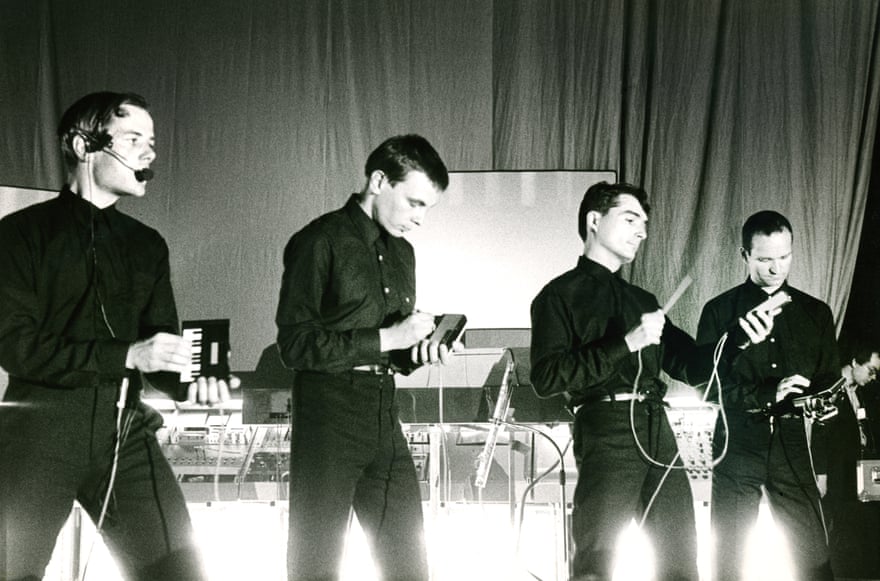Karl Bartos: ‘Kraftwerk turned into the dehumanisation of music’ | Music
When a teenage Karl Bartos told his parents that he wanted to dedicate his life to music, his father was so furious that he kicked his son’s acoustic guitar to pieces.
After hearing the Beatles at 12, something had awakened in him – “I wanted to feel like how they sounded,” he says – and so he persisted past that smashed guitar. Tripping on LSD listening to Hendrix was another portal. “The music spoke to me in all the world’s languages at once,” he recalls in his memoir. “I understood its message down to the very last frequency. Never before had the essence of music been as clear.”
The memoir, The Sound of the Machine: My Life in Kraftwerk and Beyond, is an incredibly detailed book about Bartos’s life: from those pivotal childhood moments, years spent at the Robert Schumann Conservatory in Dusseldorf where he studied percussion, through to his time in what is considered the classic Kraftwerk line-up – Bartos, Ralf Hütter, Florian Schneider, Wolfgang Flür – in which he played from 1974 until 1990.
Kraftwerk were looking for a percussionist for some live dates and Bartos was recommended by his professor. Being summoned to their infamous and secretive Kling Klang Studio, he immediately clicked with Hütter and Schneider. “We were attracted to each other and it just felt pure,” he recalls. “I knew from the first meeting it was something very special.”

Ralf Hütter, Karl Bartos, Wolfgang Flür, Florian Schneider. Photograph: Gie Knaeps/Getty Images
Bartos joining coincided with the release of Autobahn, a record – specifically its title track – often considered a benchmark for modernity in pop music, with its pulsing groove stretching out into the future. Work soon commenced on concept album Radio-Activity, and Bartos became more of an embedded member, contributor and co-writer. The subsequent albums Trans-Europe Express, The Man-Machine and Computer World (1977-1981) are an immaculate, peerless run of records that shimmer and glisten with metallic sparkle; equal parts meticulous pop and futuristic sci-fi soundscapes, they became the blueprint for electronic pop in the ensuing decade. Bartos says Kraftwerk’s mission was to invest technology with humanity, to make it “feel-able and visible – and this was different to all the electronic pop music which was inspired by us. They just treated the electronic equipment like a guitar; they just played songs in the tradition of English pop music. But Kraftwerk remained different because we wanted to make people aware of technique.”
Not only were the band climbing consistent creative peaks in the studio but their dynamic was at its most friendly and sociable. Some were living together in a place that housed what Bartos describes as “legendary parties”, though he won’t be drawn on juicy details. For those we must instead turn to Flür’s memoir I Was A Robot. “A Super 8 projector would be playing sex films on to the wall next to the bathtub,” he wrote. “Everything would be covered in bubble bath and red wine, and candlelight would dimly illuminate the sweaty scene. These parties were like Sodom and…
Read More: Karl Bartos: ‘Kraftwerk turned into the dehumanisation of music’ | Music
